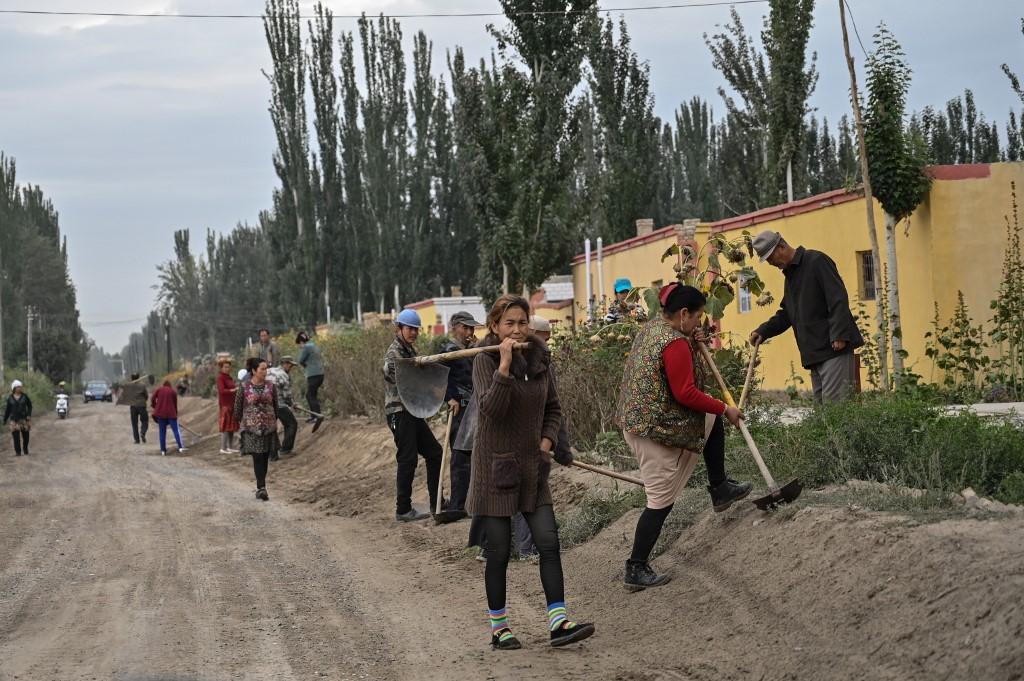Popular US companies try to dilute proposed Uighur ‘forced labour’ protection bill
The bill would ban companies from manufacturing products in Xinjiang, China, using forced labour.
Just In
Nike and Coca-Cola are on a list of companies who want to dilute a proposed US law aiming to ban imports from Xinjiang, China.
The region allegedly uses minority Muslim groups being held in detention camps as forced labour to manufacture products which end up on US store shelves, according to media reports.
The bill, called the Uyghur Forced Labour Prevention Act, aims to forbid the import of a variety of products and materials from that region of China, in an effort to crack down on human rights abuses, the New York Times reported on Sunday.
Xinjian produces cotton, sugar, coal and tomatoes and also supplies workers for Chinese clothing factories. The native population is largely a Turkic ethnic group who Beijing is trying to deter from following its Muslim faith.
The Congressional-Executive Commission on China released a report in March that named a number of companies with suspected ties to forced labour, including Nike, Coca-Cola, Adidas, Calvin Klein, Campbell Soup Company, Costco, H&M, Patagonia and Tommy Hilfiger.
The companies trying to weaken the bill say while they condemn the use of forced labour and acts of cruelty on groups like the Uighurs in Xinjiang, the legislation could seriously disrupt their supply chains in China.
Coca-Cola in a statement said it “strictly prohibits any type of forced labour in our supply chain” and monitors its suppliers. The company also said its Xinjiang facility supplies sugar to a local bottling factory linked to allegations of forced labour “successfully completed an audit in 2019”.
The director of global communications at Nike, said it “did not lobby against” the bill but did engage in “constructive discussions” with congressional staff aides.
Nike responded to the forced labour claims by referring to a March statement that said the company does not source products from the region and always ensures that its supplies are not using materials from Xinjiang.
The bill would require companies sending goods to the US to examine the supply chains and possibly drop business with Chinese suppliers.
It would also ban importing goods made “in whole or in part” in Xinjiang unless the companies can prove that the products were not made with forced labour.
Subscribe to our newsletter
To be updated with all the latest news and analyses daily.
